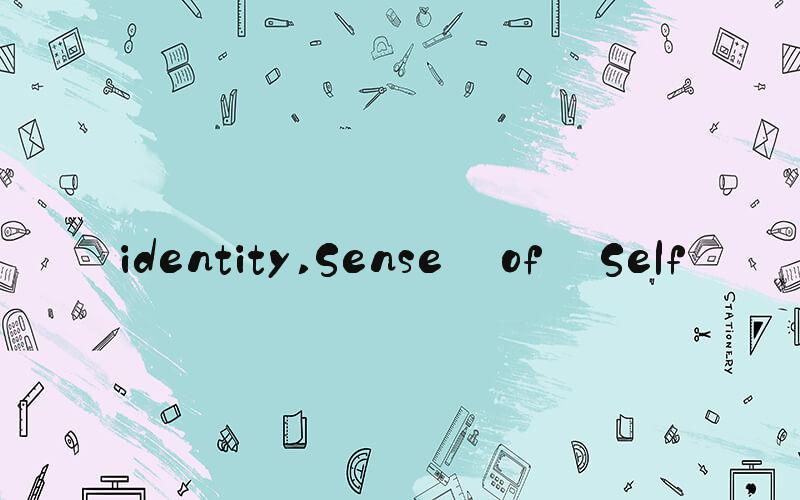
 Identity
IdentityIdentity is a complex concept that encompasses how we see ourselves and how others perceive us. It includes our sense of self, our beliefs, values, and cultural background. Identity can be shaped by a variety of factors, including our family, society, education, and experiences. In this article, we will explore the different aspects of identity and how they influence our lives.
Sense of SelfOur sense of self is the core of our identity. It includes our personality, beliefs, values, and behaviors. It is how we see ourselves and it shapes our interactions with others. Our sense of self is influenced by a multitude of factors, including our upbringing, life experiences, and culture. It can also change throughout our lives as we go through different stages of development. Developing a healthy sense of self is crucial for our well-being and happiness.
Cultural IdentityCultural identity refers to the shared beliefs, values, customs, behaviors, and artifacts that characterizes a group or society. It can also refer to an individual's sense of belonging to a particular cultural group. Cultural identity shapes our worldview, social interactions, and sense of self, and it is an important aspect of our identity. It can influence how we perceive ourselves and others, and it can impact our behaviors and beliefs.
Social IdentitySocial identity refers to how we identify ourselves in relation to others. It includes our race, gender, social class, and other group memberships. Social identity can shape our attitudes, behaviors, and social interactions. It can also impact our self-esteem and sense of belonging. Understanding and accepting our social identity is crucial for building positive social relationships and avoiding discrimination and prejudice.
Identity FormationIdentity formation is a complex process that begins in childhood and continues throughout our lives. It involves developing a sense of self and integrating different aspects of our identity, including our cultural and social identities. Identity formation is influenced by many factors, including family, society, education, and experiences. It can also be impacted by life events and crises. A healthy process of identity formation is important for developing resilience and coping skills as we navigate life's ups and downs.
Identity and Mental HealthIdentity is closely linked to mental health. A strong sense of self and positive identity can help protect against mental health issues such as depression and anxiety. On the other hand, struggling with identity can lead to identity crises, low self-esteem, and mental health problems. Understanding and accepting our identity, including our cultural and social identities, is crucial for promoting good mental health and well-being.
ConclusionIdentity is a multifaceted concept that includes our sense of self, cultural and social identities, and identity formation. It impacts every aspect of our lives, from our beliefs and behaviors to our interactions with others. Understanding and accepting our identity is crucial for developing a healthy sense of self and promoting good mental health. Let us celebrate the richness of our identities and embrace our differences, as they make us who we are.
